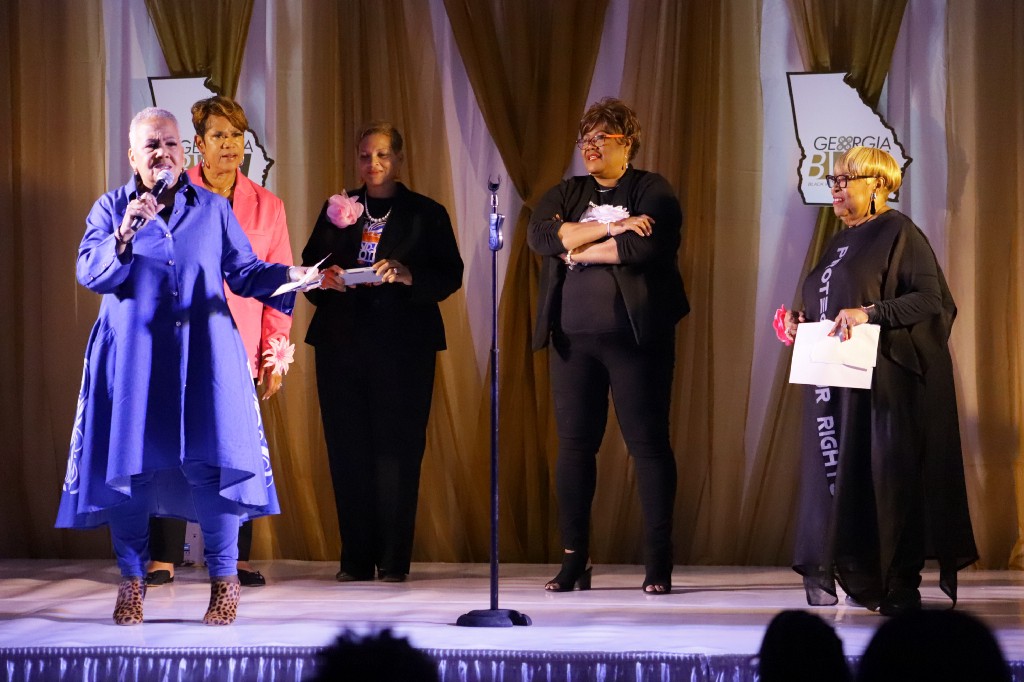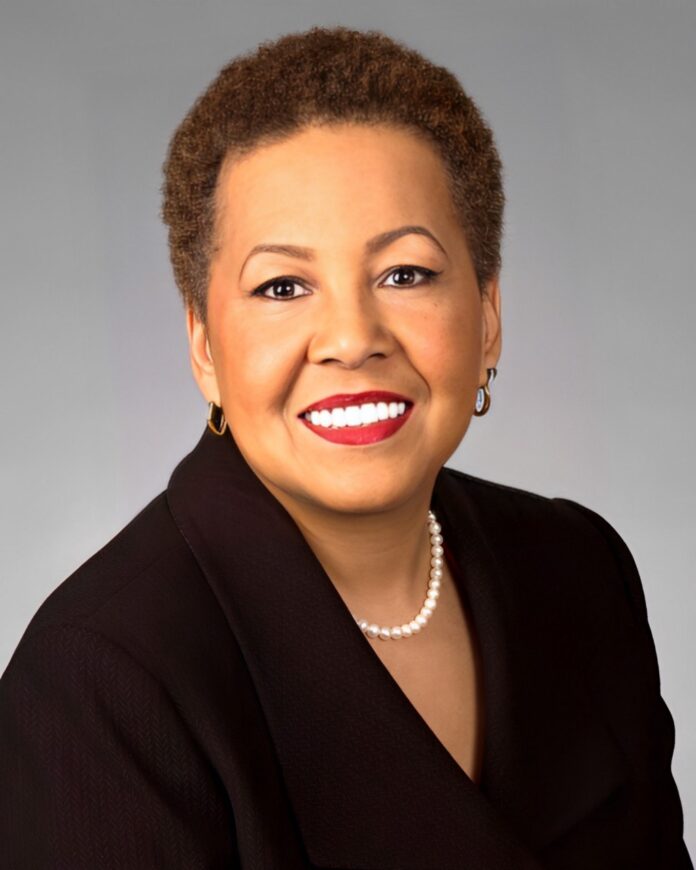Felicia M. Davis of the HBCU Green Fund: 5 Things We Must Do To Inspire The Next Generation About Sustainability And The Environment
An Interview With Martita Mestey
Understanding the enormous challenges youth must grapple with, accept the fact that things that seem extreme may have enormous value so keep a very open mind.
As part of my series about what we must do to inspire the next generation about sustainability and the environment, I had the pleasure of interviewing Felicia M. Davis.
Felicia M. Davis is a climate justice leader committed to environmental, economic and social justice. For more than two decades she has worked to achieve measurable reductions in greenhouse gas emissions through energy efficiency retrofits, green building, renewable energy solutions and an array of sustainable practices. In 2016 Felicia co-founded the HBCU Green Fund to help finance green projects at Historically Black Colleges and Universities. Her network includes climate organizers from some 20 African countries working to ensure a “sustainable future for Africa and the Diaspora.”
Thank you so much for doing this with us! Our readers would love to “get to know you” a bit more. Can you tell us a bit about how you grew up?
I grew up in a small relatively close-knit northern New Jersey suburban community with good public schools, two parent families, and strong Black leadership.
Was there an “aha moment” or a specific trigger that made you decide you wanted to become a scientist or environmental leader? Can you share that story with us?
I am passionate about service. I believe that leadership requires great fellowship, the courage to step forward and the stamina to stay the course. I am driven by a quest for equity. Early in my career it was Title IX, gender equity and women’s advancement, especially in higher education. In the 1990s it was bridging the digital divide and from 2000 on it has been climate change which is an existential threat and most critical issue of my time.
My grandmother was the greatest conservationist and one of the wisest women I have ever known. She warned that because of our wasteful ways and inability to distinguish between needs and wants we would run out of things that we actually need like water in my lifetime. She also said that our children would turn on us because we value acquisition more than people. Early global warming predictions validated so many lessons that my grandmother taught creating a profound “aha moment”. I understood the science, but it was my grandmother’s wisdom that I trusted and enabled me to dedicate my energy to advancing climate justice.
Is there a lesson you can take out of your own story that can exemplify what can inspire a young person to become an environmental leader?
Today there are a half-billion African youth under the age of 20. It is up to this generation to learn from mistakes and create new ways of organizing and sharing that will enable their entire generation to flourish. Youth in America have the luxury of time to think, travel, explore and come up with innovative solutions to local, national and global problems. The lesson that I want to share is that it is possible to solve big problems. I can point to Apartheid as a system that was changed, and I can say that I helped. Climate justice is a consideration because a small group of dedicated individuals worked hard to make the case. We will hand this work off to young people to move the movement forward. At the end of the day power rests in being able to say, “I helped.”
Can you tell our readers about the initiatives that you or your company are taking to address climate change or sustainability? Can you give an example for each?
We have a clean energy fellowship pilot program in the Atlanta University Center and we’re working with Gemini Energy Solutions to train HBCU students to conduct investment grade energy audits. In early 2023 we will launch our Africa Eco Spring Break that will take students to Senegal for a service-learning experience on the border of Senegal and Mauritania. We are supporting community-based environmental projects in several African countries and we host an annual BIPOC Climate Justice Dialogue and a PRE COP virtual/hybrid summit. In the civic arena we work to increase civic engagement and voter turnout in the Black community. We feature, support and partner with several eco focused businesses and organizations.
Can you share 3 lifestyle tweaks that the general public can do to be more sustainable or help address the climate change challenge?
These things are more sustainable:
- One of the most impactful personal actions is to eat less meat. It doesn’t require becoming a vegan, even one meatless day is impactful.
- Next, avoid plastic. It is deadly but very difficult to eliminate. Young people must reject the use of plastic.
- Finally, prioritize saving over spending.

Ok, thank you for all that. Here is the main question of our interview: The youth-led climate strikes of September 2019 showed an impressive degree of activism and initiative by young people on behalf of climate change. This was great, and there is still plenty that needs to be done. In your opinion, what are 5 things parents should do to inspire the next generation to become engaged in sustainability and the environmental movement? Please give a story or an example for each.
- Most young people have a high regard for and follow the example of their parents. When adults take action and change habits children are more inclined to follow, so the first thing is for the parent to take action.
- Join or support youth climate action (contributions, activity, rhetoric).
- Refrain from celebrating consumerism and prioritize personal interaction. Make time and space to listen to youth without lectures or expectation. Grow something, cook something, make something, fix something and increase acts of kindness, generosity and caring for people and the planet.
- Understanding the enormous challenges youth must grapple with, accept the fact that things that seem extreme may have enormous value so keep a very open mind.
- Meditate, pray, read and whatever one does in the spiritual realm, do these things with youth in mind.
How would you articulate how a business can become more profitable by being more sustainable and more environmentally conscious? Can you share a story or example?
Businesses that have a physical footprint should be mindful of employing energy efficiency — this ranges from habits to retrofits and renewables. Saving on utilities contributes to a better bottom line. Youth are mindful of corporate values, commitments and impacts and it is incumbent upon all businesses to understand and mitigate their environmental impact.
None of us are able to achieve success without some help along the way. Is there a particular person who you are grateful towards who helped get you to where you are? Can you share a story about that?
It is said that if you see a turtle on a fence post you know it didn’t get there alone. Whether it was my phenomenal friendships or my generous mentors, relationships have been key to any success that I have experienced. Early in my career I worked to advance women in higher education and was mentored by Dr. Donna Shavlik. I had mentors that made significant contributions in civil rights and politics who have all joined the ancestors including, Dr. Joseph Lowery who gave me invaluable guidance and support; role models like Dr. Dorothy Height, Dr. Yvonne Scruggs-Leffwich and Dr. Rita Samuels; and Dr. Ron Walters who impacted my political thought.
John Passacantando, then the head of Ozone Action, recruited me to help engage the Black community in pressing for action on global warming and air quality. At the time I worked within the civil rights arena and had good working relationships with three leaders who are no longer with us: Dr. Lowery, who led the Georgia Coalition for the People’s Agenda, Dr. Scruggs-Leftwhich, who led the Black Leadership Forum, and the late Connie Tucker, the leader of the Southern Organizing Committee.
I was fortunate to have all of them join with Clear the Air in supporting the “Air of Injustice” report written in collaboration with the Clean Air Taskforce. Published in 2002, Air of Injustice was among the first reports to directly connect air pollution and asthma. It also made the case for action on global warming. I am grateful to all of the individuals that supported me at a time when the idea that humans actually contribute to climate change was not widely accepted. They trusted my work and their support contributed enormously to my early success. Back then very few people were convinced that climate change was real and even those that believed the science still did think that humans could make a difference.
“Air of Injustice” (http://www.dogonvillage.com/?p=8388) reported that coal-fired power plants are the largest industrial emitters of a list of pollutants with negative health impacts such as increased asthma, lung disease, premature deaths and even increases in infectious disease. Long before Hurricane Katrina we tried to sound the alarm connecting poverty, race, geography and even insurance status to climate impacts. Focusing nationally recognized civil rights leaders on the impact Climate Change has on the African American community was significant in getting our community to recognize global warming as an existential threat.
Dr. Scruggs-Leftwich and Connie Tucker also traveled with me to several UN climate conferences including COP 6 in The Hague, Netherlands in 2000, preparatory meetings in Geneva, Switzerland and a climate summit I convened during the UN World Conference Against Racism in Durban, South Africa.
You are a person of great influence and doing some great things for the world! If you could inspire a movement that would bring the greatest amount of good to the greatest amount of people, what would that be? You never know what your idea can trigger. 🙂
Reparations will be the next great movement. The resources needed to heal enormous harm, clean up unthinkable damage, and begin to establish justice and equity resides in undeserved endowments and systems that drive profits from those that create value. Slavery is a perfect example and by dealing with the injustice of the past the movement for reparations will impact the future by making it wrong and impossible for a single person to make billions exploiting the labor of others.
Do you have a favorite life lesson quote? Can you tell us how that was relevant to you in your own life?
Favorite question: If we get it right what will it look like? This is a guiding question that prompts vision with specificity and that is essential for change.
What is the best way for people to follow you on social media?
Twitter @FeliciaMDavis @hbcugreenfund hbcugreenfund.org/.
This was so inspiring. Thank you so much for joining us!
Felicia M Davis of the HBCU Green Fund: 5 Things We Must Do To Inspire The Next Generation About S was originally published in Authority Magazine on Medium, where people are continuing the conversation by highlighting and responding to this story.


